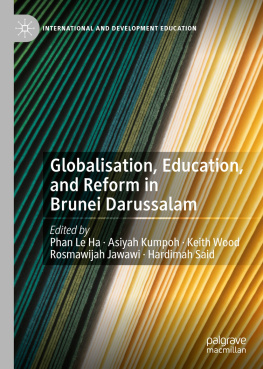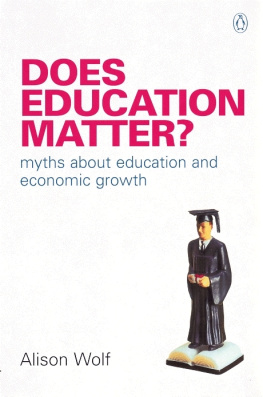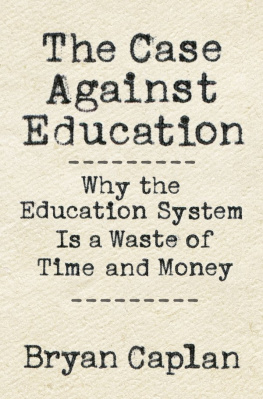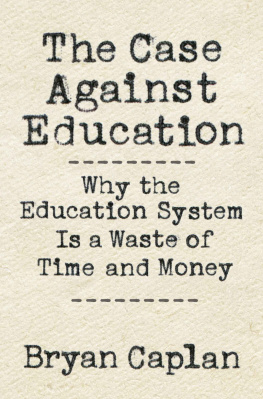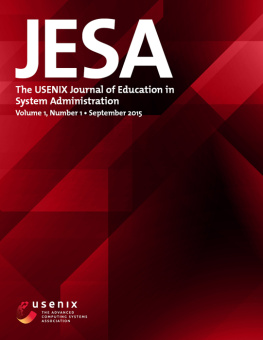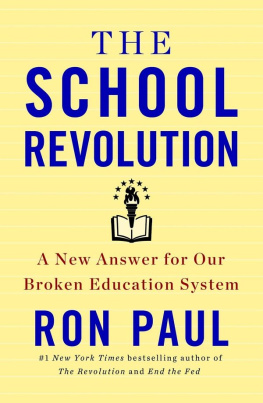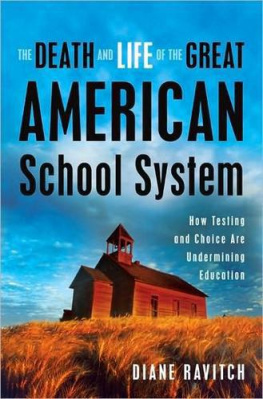Contents

Life Lessons
Life Lessons
The Case for a National
Education Service
Melissa Benn

First published by Verso 2018
Melissa Benn 2018
All rights reserved
The moral rights of the author have been asserted
1 3 5 7 9 10 8 6 4 2
Verso
UK: 6 Meard Street, London W1F 0EG
US: 20 Jay Street, Suite 1010, Brooklyn, NY 11201
versobooks.com
Verso is the imprint of New Left Books
ISBN-13: 978-1-78873-220-8
ISBN-13: 978-1-78873-222-2 (US EBK)
ISBN-13: 978-1-78873-221-5 (UK EBK)
British Library Cataloguing in Publication Data
A catalogue record for this book is available from the British Library
Library of Congress Cataloging-in-Publication Data
Names: Benn, Melissa, author.
Title: Life lessons : the case for a national education service / Melissa Benn.
Description: London ; Brooklyn, NY : Verso, 2018. | Includes bibliographical references. |
Identifiers: LCCN 2018027369 (print) | LCCN 2018029215 (ebook) | ISBN 9781788732222 (United States E Book) | ISBN 9781788732215 (United Kingdom E Book) | ISBN 9781788732208 | ISBN 9781788732222 (US ebk) | ISBN 9781788732215 (UK : ebk)
Subjects: LCSH: Education and state Great Britain. | Education Aims and objectives Great Britain. | Educational equalization Great Britain. | Educational change Great Britain.
Classification: LCC LC93.G7 (ebook) | LCC LC93.G7 B46 2018 (print) | DDC 379.0941 dc23
Typeset in Fournier by MJ & N Gavan, Truro, Cornwall
Printed in the US by Maple Press
For Clyde Chitty: pioneer, inspiration, and friend
Contents
We are at a crossroads. As I write, it is clear that the current Conservative Government has no strategic or even positive vision for the improvement of education for all in England. The drama and drive of the early years of the Coalition Government, shaped by Michael Gove as secretary of state for education, have long faded. For the past few years successive ministers have responded piecemeal to the problems that the disruptive transformations of the preceding years have bequeathed with what one parliamentary report described as a disparate collection of small-scale interventions. Currently, the governments attempts to fix the worst excesses of a previous era are marred by a peculiar determination to wage a low-level war of attrition against the autonomy of our universities and edge our secondary schools back towards the selective practices of a vanished post-war world.
The broad outline of an alternative approach is slowly emerging. Out from the protests against growing inequality and the damaging effects of austerity in the long decade since the 20072008 financial crash, has come the rekindling of radical movements and fresh thinking on old problems. In 2015, following the election of Jeremy Corbyn as leader, the Labour Party called for the establishment of a National Education Service (NES) committed to free, cradle-to-grave education. The idea appeared largely symbolic until the publication of Labours manifesto in response to the snap general election in June 2017 which spelled out some of its education plans in more detail including the abolition of all university tuition fees, a bold stroke that won it widespread support, particularly among younger voters. A charter of principles, published in the autumn of 2018, outlined a commitment to schools rooted in their communities, with parents and communities empowered, via appropriate democratic means and policies and practices that will support the emotional, social and physical well-being of students and staff. The idea of an NES, initially greeted with contemptuous torpor by so many in the educational and political establishment, is now gathering force, with a widespread consultation under way and meetings being held up and down the country.
What exactly is a National Education Service? How, some ask, would it differ from the system as it already exists? The first thing to say is that it is not a proposal for the creation of an overarching institution or, to anticipate Daily Mailtype headlines, a rallying call for the Marxist nationalisation of state education (indeed some might argue that this has long ago occurred with central government steadily tightening its grip on education since the late 1980s). A National Education Service has, instead, a fresh promise at its heart: the pledge of genuinely free education over the course of a lifetime: cradle to grave provision. In this alone, it conveys a quite different flavour to our increasingly costly system, unduly concentrated on the school years. Such a service would enshrine a set of guiding principles similar to that of the NHS, whose core values were reaffirmed in 2011 including, among them: a commitment to comprehensive provision free at the point of use; special attention paid to disadvantaged groups; the placement of the individual at the heart of the service; a service that is publicly accountable; and an assurance of professional excellence.
One cannot overestimate the impact and significance of such a similar statement of intent in relation to education, not least in terms of popular perception. From its inception in 1944, free secondary education was established on a very different basis to the free health provision inaugurated by the setting up of the NHS in 1948. While a great advance, free secondary education was essentially a divisive offer to the nation, allocating children to different types of schools before they had reached puberty. In contrast, free health provision was a universal offer to affluent and poor alike. These differing political origins have shaped generations of contrasting public attitudes towards our two great public services: a fiercely loyal attachment to the NHS, even in the hardest of times, compared with an often conditional, critical view of state education, even in the best of times.
A National Education Service seeks to begin to heal that historic divide, to confirm education as a core entitlement, a guarantee from society to each one of its members genuinely to underwrite their intellectual and vocational development. Education must be seen as a collective investment in the public good as opposed to a vehicle solely for the achievement of individual aspiration or intergenerational social mobility, which comprise the political emphasis of the past two decades with its corresponding concentration on an ever-more limited, supposedly economically efficient yet apparently unachievable set of outcomes.
As part of that NHS-style entitlement, the NES would knit together disparate services, institutions and stages into a more unifying offer without compromising the distinct character, demands and autonomy of each part. Just as we take for granted that we may visit the GP with a wide range of ailments or go into hospital in times of acute illness or emergency, or feel reassured that one day we might benefit from high-level research in, and treatment of, life-threatening conditions, so the NES will provide us with the education we need, at different times, in different ways, guided by thoughtful, expert educators. Access to free provision from the early years through primary and secondary education to higher and further education, with continuous access to lifelong learning, should be deemed our right as citizens. We should also trust that investment and expenditure decisions reflect the needs of all, not those of the most powerful or influential. A society as rich as ours can afford it; a society as divided as ours cannot afford to continue as we are.



